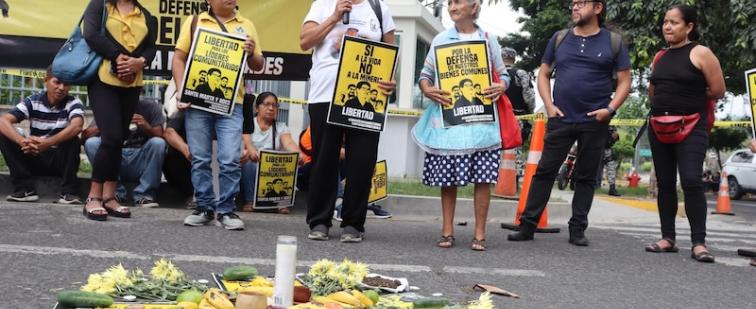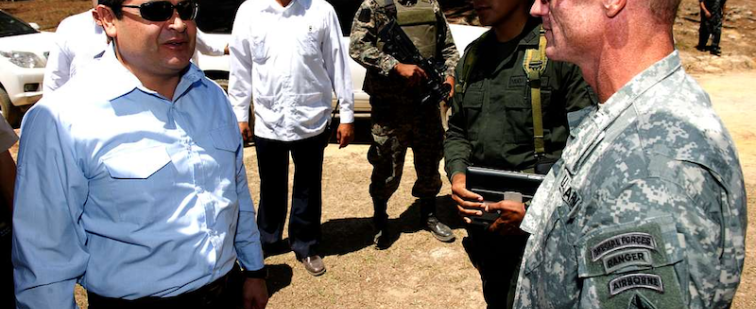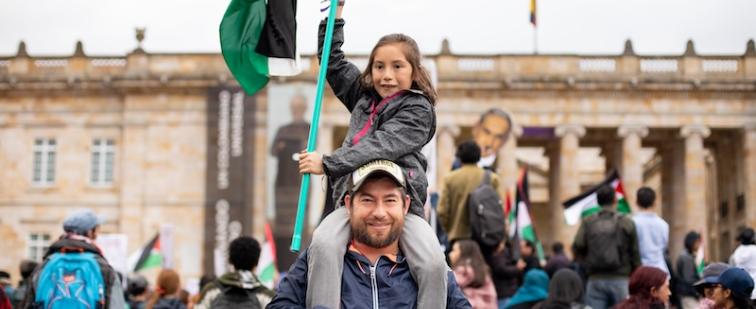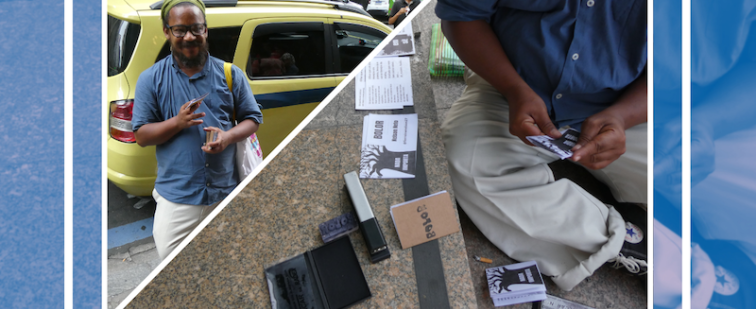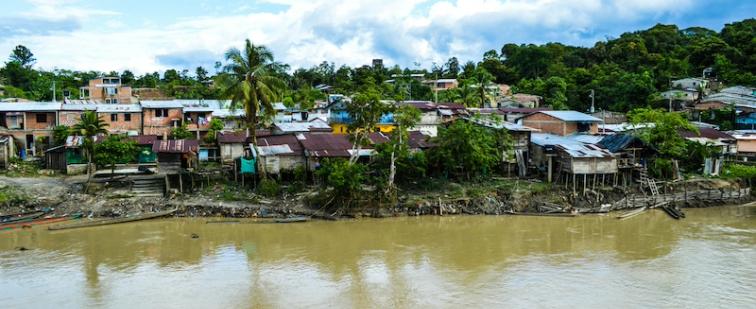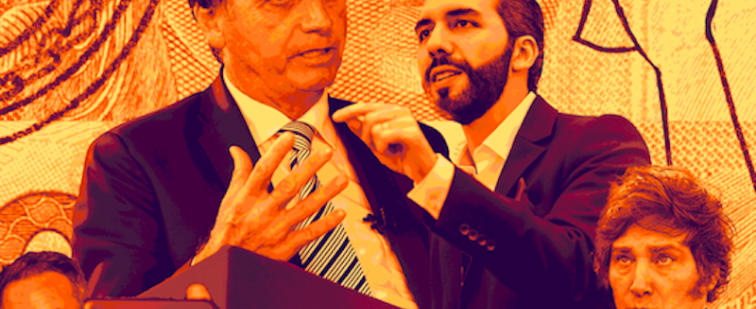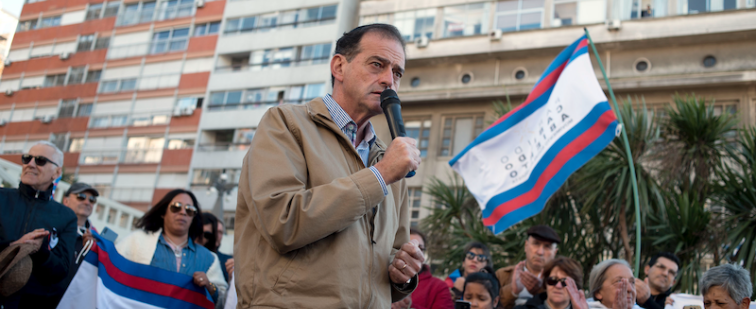Home
Whatever comes next in Honduras, tens of thousands of ordinary Hondurans, from its new culture of resistance, will meet it with nerves of steel, forged in the terrible repression that followed the military coup last June. At least 40 people in the resistance have been killed, more than 3,000 illegally detained, and hundreds raped, beaten, and/or tortured in detention. For every person who has bravely come forward to testify about human rights abuses, there are five behind him or her terrified to speak out for fear of reprisals. And yet Hondurans have emerged from all this with a new sense of their own personal and collective powers. What exactly is this new creature, the Honduran resistance?
This article originally appeared in the May/June 2010 edition of NACLA Report on the Americas.
On April 23 Arizona Governor Jan Brewer signed into law what is being billed as the "broadest and strictest immigration measure in generations." The law requires Arizona police to ask people for documentation based on a "reasonable suspicion" that they are in the country "unlawfully," it targets day laborers and their employers, and sets up trespassing charges for those in the state without correct immigration papers, for which they could face jail time. This harsh new law has not only ignited condemnation inside and outside of the United States, but also in Arizona where many have taken to the streets in protest.
In March a high-octane U.S. delegation went to Mexico that included Secretary of State Hillary Clinton and several military, security, and intelligence officials to negotiate phase two of the Merida Initative, a multi-billion dollar U.S. military and police aid package to Mexico. Officials claim that this new phase will be a reformed version of the original, focusing less on military support and more on curbing drug demand in the United States. However, beneath the rhetoric, the military strategy continues to be the number one priority, as Mexican soldiers learn from U.S. military personnel counter-insurgency tactics used in Iraq and Afghanistan, "where the enemy lives among civilians."
On April 26, the New York University Coalition to Keep Coca-Cola Off Campus will launch its new campaign to ban all Coke’s products from the campus with a screening of the award-winning documentary The Coca-Cola Case. The campaign, like the movie, seeks to highlight Coca-Cola’s refusal to allow an independent investigation into the killing of eight members of a union, that represents workers at Coke’s bottling plants in Colombia, by paramilitary forces.
Imagine you live in a slow and sleepy village where the cow population rivals that of people and suddenly some 10,000 people from all parts of the planet descend upon it—bearing slogans. Welcome to Tiquipaya for the People's Summit on Climate Change. This repost from the Bolivia-based Democracy Center's blog brings together the on-the-ground reporting from Jim Shultz, Elizabeth Cooper, and Jessica Camille Aguirre, who dare to grapple with the huge questions raised at the summit this week.
Soon after the June coup in Honduras, the de facto government unleashed a vigorous PR campaign against ousted president Manuel Zelaya, accusing him of being involved in drug trafficking. This linking of Zelaya to drugs remained a prominent feature of the coup government’s propaganda during its seven-month reign, and offers an insight into the the many political uses of the drug war in the Americas, even to justify the overthrow of a democratically elected president.
Brazil’s former president Fernando Henrique Cardoso visited Cornell University on April 7 to give a lecture, talk to the press, and receive yet another academic award. The onetime Marxist sociologist, now the political leader of the centrist Brazilian Social Democratic Party (PSDB), and one of the North’s favorite neoliberal statesmen, Cardoso commands boundless respect in the international arena. He frequently airs his views in editorial pages and lecture podiums all over the world, but back in Brazil, Cardoso inspires rather less awe, which could have an impact on Brazil's upcoming election.
Proclaiming its lithium deposits to be a permanent reserve of the state, the Bolivian government last month authorized a new state company to undertake “the full chain of lithium production,” including “exploration, development, industrialization, and marketing.” At issue is the future of Bolivia’s vast Uyuni salt flats, the world’s largest untapped lithium reserve, holding at least 5.4 million tons—almost half the world’s known supply. Also at stake is a potentially significant source of wealth and an alternative development model that, if successful, could bring substantial benefits to Bolivia’s impoverished population.
On February 25, José Armando Palacios and José Alberto Vicente Chávez, along with their families, filed a lawsuit against the Coca-Cola Company in the New York State Supreme Court. The company is accused of allowing its bottling and processing plants in Guatemala to engage in a campaign of violence against the two men, both prominent union leaders. Though Coke claims the U.S. legal system is being manipulated, the prosecution maintains that Guatemala’s courts, rife with impunity, are incapable of delivering justice.

